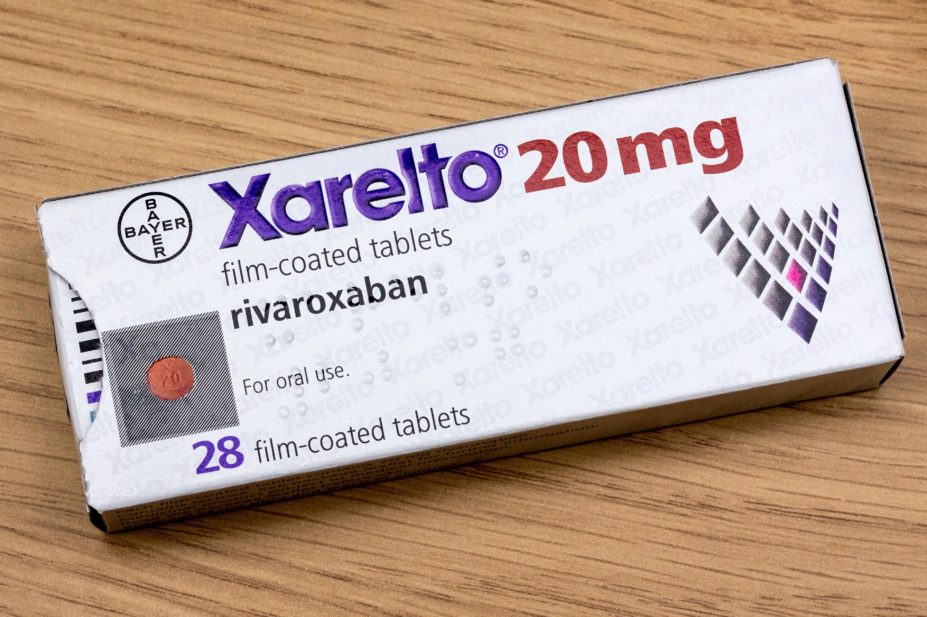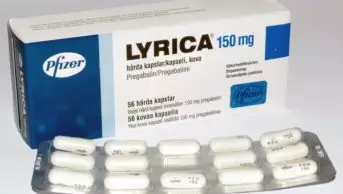
Annie Eagle / Alamy Stock Photo
A drug company may have withheld data from the US Food and Drug Administration (FDA) about a faulty blood testing device used in a trial of the anticoagulation drug rivaroxaban (Xarelto; Janssen/Bayer), according to the results of an investigation by The BMJ
[1]
(online, 28 September 2016).
Janssen allegedly failed to disclose problems with the international normalized ratio (INR) device used to monitor warfarin levels in the phase III ROCKET AF study, which compared the use of rivaroxaban and warfarin to prevent stroke in patients with atrial fibrillation.
The BMJ also says that neither rivaroxaban’s co-developer, Bayer, nor the trial data safety monitoring board were aware about the “faulty” device, despite Janssen launching a programme to look into the accuracy and reliability of the test during the study.
Rivaroxaban is marketed as a better option than warfarin because it does not need regular tests to check blood levels of the drug.
The BMJ previously questioned (in another investigation) the validity of the ROCKET AF trial results, which were first published in The New England Journal of Medicine in September 2011, after the INR device was recalled in December 2014 for giving falsely low readings.
Janssen and Bayer have pointed to a reanalysis from the trial investigators, published as a letter in the The NEJM in February 2016, showing the INR test had not affected the outcome.
The European Medicines Agency (EMA) reviewed the evidence in February 2016 and said that “there was sufficient evidence to conclude that the benefit/risk balance remains unchanged and favourable for treatment with rivaroxaban in the prevention of thromboembolism in non-valvular atrial fibrillation”.
A spokesperson for the FDA told The BMJ that it is “continuing to review relevant data”, but said that it has “not changed its recommendations regarding the use of Xarelto”.
As part of The BMJ’s investigation, several experts have questioned whether the original trial results can be trusted.
Markku Kaste, one of the trial investigators and former head of the Clinical Stroke Research Group at Helsinki University General Hospital, told The BMJ that he has “some doubts about the validity of the ROCKET AF trial”, after learning that results from the safety programme of the INRatio test were not shared with investigators.
“It possibly skews the data in favour of rivaroxaban,” he adds.
A former FDA official, Thomas Marciniak, who was a drug reviewer on Janssen’s application to use rivaroxaban in acute coronary syndrome, told The BMJ that the analyses on data submitted as part of the regulatory approval are “worthless”.
Carl Heneghan, professor of evidence-based medicine at the University of Oxford, told The BMJ that patients in the trial may have been put at undue risk of harm because of the risk of bleeding if warfarin results were inaccurate and called for the trial to be repeated. “The implications are we still do not know whether this is a safe drug,” he says.
In a statement, Janssen says: “The companies have disclosed safety data to regulators and the safety monitoring board of the ROCKET AF trial and deny the central premise of The BMJ’s report.
“The data in question represent fewer than one twentieth of one percent of the 366,000 measurements taken during the ROCKET AF trial and they could not have had any impact on the conclusions of the trial.”
It adds: “It is always our intent to provide all data that are relevant to analysing the results of our clinical trials to health authorities, including the US FDA.
“Janssen and our development partner Bayer will continue to ensure that health authorities receive all required and accurate information regarding past and ongoing clinical trials.”
The statement adds that Xarelto has been thoroughly evaluated across its approved indications in real world research following the medicine’s approval, and “study after study confirm that it is performing as expected”.
A spokesperson for Bayer says the company denies the central premise of The BMJ report.
“Bayer and its partner Janssen Research & Development LLC have ensured and will continue to ensure that health authorities receive all required and accurate information regarding past and ongoing clinical trials.
“Several recent reassessments of the trial data by Bayer and Janssen, as well as by the ROCKET AF Executive Committee, plus two reviews by the EMA confirm that the benefit-risk profile of Xarelto remains unchanged and favourable,” they add.
References
[1] Cohen D. Manufacturer failed to disclose faulty device in rivaroxaban trial. The BMJ 2016;354:i5131. doi: 10.1136/bmj.i5131


